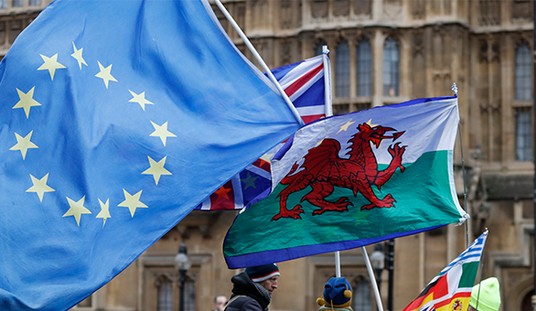I’m suppressing the urge to feel schadenfreude by reminding myself that this news comes with a steep human cost. It’s not just innocent Chinese citizens who’ll be relying on this vaccine, it’s hundreds of millions of people in third-world countries who’ve signed contracts for Sinovac’s product. A vaccine that’s only 50 percent effective means a longer pandemic in those countries, which means more misery and death.
This is bad news. Bad.
But.
The monsters in Beijing deserve a blow to their prestige. They’ve gotten away almost scot-free after the horrendous year they just had, first inflicting the curse of SARS-CoV-2 on the world, then laying waste to Hong Kong’s democracy. They’ve relished the trouble the United States and other western countries have had containing COVID. And they’ve used their manufacturing capacity to practice “vaccine diplomacy” abroad, cranking out doses of Sinovac’s and Sinopharm’s products in hopes that poorer developing nations will snap up the product and owe China favors in the future.
And now it may backfire. Sinovac’s product is a bust, according to a study out of Brazil. China’s attempt to show that its biotech industry can compete with western wizards like BioNTech and Moderna has failed.
Officials at the Butantan Institute in São Paulo said on Tuesday that a trial conducted in Brazil showed that the CoronaVac vaccine, made by the Beijing-based company Sinovac, had an efficacy rate just over 50 percent. That rate, slightly above the benchmark that the World Health Organization has said would make a vaccine effective for general use, was far below the 78 percent level announced last week…
“Those countries that have ordered the Chinese-made vaccines are probably going to question the usefulness of these vaccines,” said Yanzhong Huang, a senior fellow for global health at the Council on Foreign Relations and an expert on health care in China.
“Countries with opposition parties might use this to challenge the decision made by the incumbent government, and that will likely have domestic political implications in these countries,” Mr. Huang said.
Read that last part again. The scarlet “C” may actually jeopardize some sitting governments’ hold on power in the 10 nations that have ordered Sinovac’s product. Obvious lesson: Buy American. (Or western, at least.)
Why would Sinovac’s product struggle to reach 50 percent efficacy when Moderna and BioNTech are killing it at 95 percent or so? Per the Times, it has to do with the technology involved. Moderna and BioNTech use mRNA to coax the body’s cells to manufacture the coronavirus’s distinguishing spike protein, which then begins to circulate and trigger the immune system. Sinovac’s vaccine is old school: They take the virus itself and kill it, then put that into a vaccine. The problem is that the chemicals used to kill the virus can also weaken the vaccine’s potency. Asked to compare the two, one expert put it this way: “A well-maintained Ford Model T would probably get you from Wuhan to Beijing, but personally I would prefer a Tesla.”
The good news is that Sinopharm’s product seems to be more effective, with an efficacy rate of 79 percent. Sinopharm is owned by the Chinese government, though, and it conspicuously hasn’t released the data from its clinical trials. Question: Why would anyone trust what Beijing says after the year they’ve just had? In particular, why would anyone trust Chinese vaccines?
[T]he Wuhan Institute of Biological Products, a Sinopharm subsidiary behind one of the COVID-19 candidates, was caught up in a vaccine scandal in 2018.
Government inspectors found that the company, based in the city where the coronavirus was first detected last year, had made hundreds of thousands of ineffective doses of a combination vaccine for diphtheria, tetanus and whooping cough because of an equipment malfunction.
That same year it was reported that Changsheng Biotechnology Co falsified data about a rabies vaccine.
In 2016, Chinese media revealed that two million doses of various vaccines for children had been improperly stored and sold throughout the country for years.
A former employer of the Gates Foundation told Al Jazeera that none of his well-off Chinese friends will buy medicine from China. They just don’t trust it. Relatedly, a fun fact about Sinopharm: Around a million people were vaccinated with its COVID product before clinical trials were finished. I wonder how many of them volunteered versus how many were instructed to “volunteer” by Beijing.
Enough bad news. There’s good news this week too. A few days ago, Moderna said that it expects its vaccine will provide immunity for up to a year or longer and that it could be tweaked easily to counter the sort of variant that’s running roughshod over Ireland and the UK. And the following news from an infectious disease specialist at UCSF is truly fantastic if true. It may be that the vaccine really does reduce *transmission* of the virus, not just development of severe cases, which could mean that the pandemic will end even sooner than expected:
Once you get vaccinated, should be able to block both the entry of the virus into your body & we certainly know symptomatic disease blocked by 95% (Moderna/Pfizer). However, latter trials just didn't look at asymptomatic infection & didn't swab every week because time of essence
— Monica Gandhi MD, MPH (@MonicaGandhi9) January 9, 2021
No time in history do we have this extraordinary detection of asymptomatic infection since latter can transmit to others. So, please be assured that YOU ARE SAFE after vaccine from what matters – disease and spreading. Two vaccinated people can be as close as 2 spoons in drawer!
— Monica Gandhi MD, MPH (@MonicaGandhi9) January 9, 2021
I am so excited to get vaccinated when my age group comes up, sometime in 2023 at the rate we’re going.








